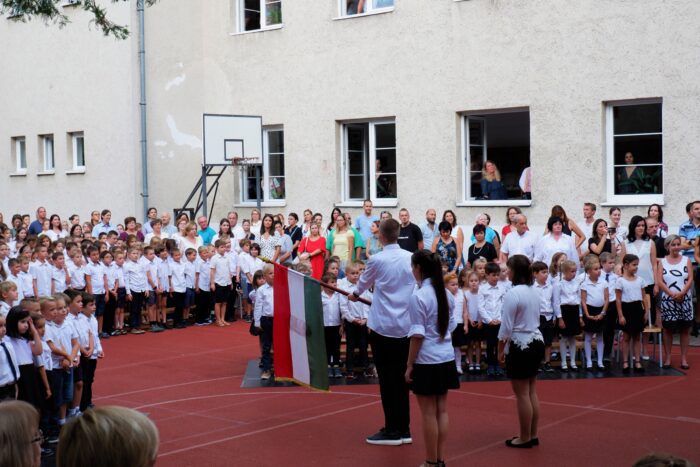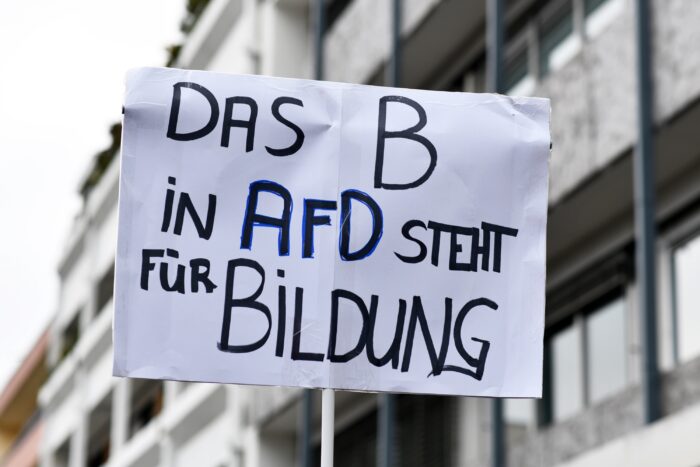Find all related Progressive Post
Progressive Post

If you hated Covid-19 in 2020, you will hate it more in 2021, under the Portuguese presidency of the EU Council. The mundane reason for this is that the period of presidency in the EU is not simply a time of pushing dossiers, dialogues and trilogues, but also one of visiting the country that holds the presidency for a variety of programmes, mainly conferences. Due to Covid-19, however, this year you will almost certainly miss out on the riverside of Porto, the seafront of Faro, or the fish market of Lisbon.
But luckily, you have all the dossiers in front of you, which represent the ambitions of the Portuguese government, the central member of the trio formed with Germany and Slovenia. And some of these dossiers, due to the relay element in the choreography of presidencies, are the ones handed over by the predecessor, in this case Germany. Since it was not so long ago, we remember well that the government in Berlin had to concentrate on the adoption of the Multiannual Financial Framework (MFF) and Next Generation EU (NGEU), and on facilitating the unholy Brexit deal that was predisposed to be a loose-loose game. Since the ink is just drying on the new budgetary framework and the Brexit trade deal, Portugal still needs to run a few circles to make all this operational. Among other concerns, they have to ensure that the hard-won rule of law conditionality does not remain on paper.
Moving towards the post-pandemic period of reconstruction, on the other hand, Portugal today is chairing a creative process that will determine the EU’s future for a longer period, at least the next investment cycle. With Prime Minister António Costa, one of the strongest politicians of the European Social Democratic family at the helm, the programme of fair, green and digital recovery is actually the act we have been waiting for. After talking for so long about the European Pillar of Social Rights (EPSR), bringing on a matching action plan can open a new historic chapter, similarly to the memorable Lisbon Strategy of 2000.
And in a post-pandemic situation, a new social agenda is bound to facilitate giant leaps on health policy. Just like the post-World War II reconstruction delivered national health care in various European countries (the UK, under Clement Attlee’s Labour government, being the most emblematic example), the post-pandemic recovery allows the EU to develop what has been already branded as Health Union. This starts with the coordination of vaccine procurement and dissemination, but continues with building safety nets for future resilience, and must also encompass policies to shore up health care capacities undermined in past decades by either the suppression of public investment or the emigration of medical staff.
Compared to the creative and innovative potential in the Health Union, receiving the migration dossier with the task of delivering consensus on it, while the clock is ticking, is a perfect “hospital pass”. The challenge here is no less than producing a new migration and asylum policy. One that replaces the old Dublin rules, which are outdated at least since the 2015 refugee crisis – if not already before. Last September, the European Commission put forward a proposal for the migration pact. But it immediately met massive headwind, despite moving away from the approach of the 2015 emergency schemes.
Solutions must be found to two main issues: regular migration flows and migration crises. A final and sustainable deal on the pact is yet to be reached, ideally under the Portuguese presidency. But Portugal’s Internal Affairs Ministry was not making its task easier when they stressed that problems related to migration from outside the EU could only be solved with “solidarity between countries”, and “such solidarity cannot be voluntary”. Insisting on “flexible” but also “mandatory” solidarity may herald clashes that could pale the ones witnessed last year around rule of law conditionality.
The Rule of law might become the issue on which Brussels finds itself in an alliance with the newly dominant US Democrats very quickly. Mending the transatlantic relationship is an agenda that has a momentum, once Joe Biden moves into the White House in Washington DC. However, any assumption that some kind of pre-Trump golden age can be restored will only lead to disappointment. The future can only be different from the past, whether the subject is Chinese technology or any other issue of international affairs.
It is somewhat ironic that the UK left the EU to pursue the vision of a “global Britain”, since implicit in the Portuguese presidency programme is the vision of a “global European Union”. A summit is scheduled with India, and important reference is made to deepening the relations with Africa as well as with Latin America. Concerning a newly reformed multilateral framework, the Portuguese, as explained by Europe minister Ana Paula Zacarias, are aiming at no less than setting international standards for social inclusion, labour rights and environmental protection.
Since 2016, and the twin trauma of “Brexit and Trump”, EU actors had ample stimulus to work on the concept of strategic autonomy, especially since a self-dubbed “geopolitical Commission” entered office. It is of course easier to talk about such concepts in general terms than defining a specific European position on China, Russia or Iran, and, if necessary, defend it vis-à-vis the US administration. But with the new US leadership’s finger on the reset button, and the world awakening from the shock of Covid-19, no better momentum should be expected. Hic Rhodus, hic salta!
| Cookie | Duration | Description |
|---|---|---|
| cookielawinfo-checkbox-advertisement | 1 year | Set by the GDPR Cookie Consent plugin, this cookie is used to record the user consent for the cookies in the "Advertisement" category . |
| cookielawinfo-checkbox-analytics | 11 months | This cookie is set by GDPR Cookie Consent plugin. The cookie is used to store the user consent for the cookies in the category "Analytics". |
| cookielawinfo-checkbox-functional | 11 months | The cookie is set by GDPR cookie consent to record the user consent for the cookies in the category "Functional". |
| cookielawinfo-checkbox-necessary | 11 months | This cookie is set by GDPR Cookie Consent plugin. The cookies is used to store the user consent for the cookies in the category "Necessary". |
| cookielawinfo-checkbox-others | 11 months | This cookie is set by GDPR Cookie Consent plugin. The cookie is used to store the user consent for the cookies in the category "Other. |
| cookielawinfo-checkbox-performance | 11 months | This cookie is set by GDPR Cookie Consent plugin. The cookie is used to store the user consent for the cookies in the category "Performance". |
| csrftoken | past | This cookie is associated with Django web development platform for python. Used to help protect the website against Cross-Site Request Forgery attacks |
| JSESSIONID | session | The JSESSIONID cookie is used by New Relic to store a session identifier so that New Relic can monitor session counts for an application. |
| viewed_cookie_policy | 11 months | The cookie is set by the GDPR Cookie Consent plugin and is used to store whether or not user has consented to the use of cookies. It does not store any personal data. |
| Cookie | Duration | Description |
|---|---|---|
| __cf_bm | 30 minutes | This cookie, set by Cloudflare, is used to support Cloudflare Bot Management. |
| S | 1 hour | Used by Yahoo to provide ads, content or analytics. |
| sp_landing | 1 day | The sp_landing is set by Spotify to implement audio content from Spotify on the website and also registers information on user interaction related to the audio content. |
| sp_t | 1 year | The sp_t cookie is set by Spotify to implement audio content from Spotify on the website and also registers information on user interaction related to the audio content. |
| Cookie | Duration | Description |
|---|---|---|
| CONSENT | 2 years | YouTube sets this cookie via embedded youtube-videos and registers anonymous statistical data. |
| iutk | session | This cookie is used by Issuu analytic system to gather information regarding visitor activity on Issuu products. |
| s_vi | 2 years | An Adobe Analytics cookie that uses a unique visitor ID time/date stamp to identify a unique vistor to the website. |
| Cookie | Duration | Description |
|---|---|---|
| NID | 6 months | NID cookie, set by Google, is used for advertising purposes; to limit the number of times the user sees an ad, to mute unwanted ads, and to measure the effectiveness of ads. |
| VISITOR_INFO1_LIVE | 5 months 27 days | A cookie set by YouTube to measure bandwidth that determines whether the user gets the new or old player interface. |
| YSC | session | YSC cookie is set by Youtube and is used to track the views of embedded videos on Youtube pages. |
| yt-remote-connected-devices | never | YouTube sets this cookie to store the video preferences of the user using embedded YouTube video. |
| yt-remote-device-id | never | YouTube sets this cookie to store the video preferences of the user using embedded YouTube video. |
| yt.innertube::nextId | never | This cookie, set by YouTube, registers a unique ID to store data on what videos from YouTube the user has seen. |
| yt.innertube::requests | never | This cookie, set by YouTube, registers a unique ID to store data on what videos from YouTube the user has seen. |
| Cookie | Duration | Description |
|---|---|---|
| COMPASS | 1 hour | No description |
| ed3e2e5e5460c5b72cba896c22a5ff98 | session | No description available. |
| loglevel | never | No description available. |


